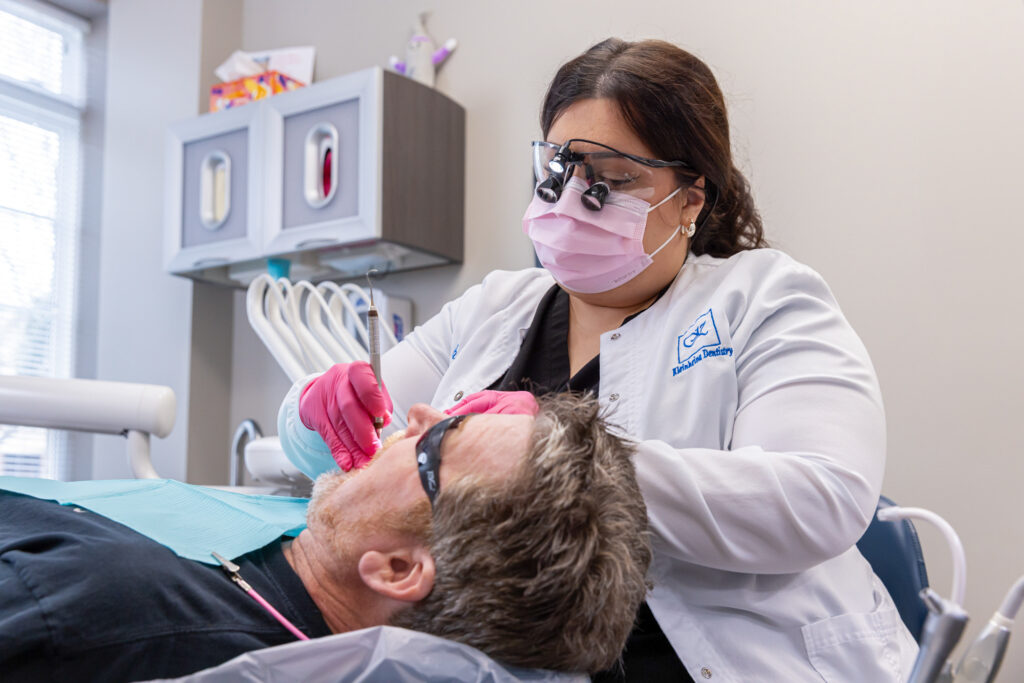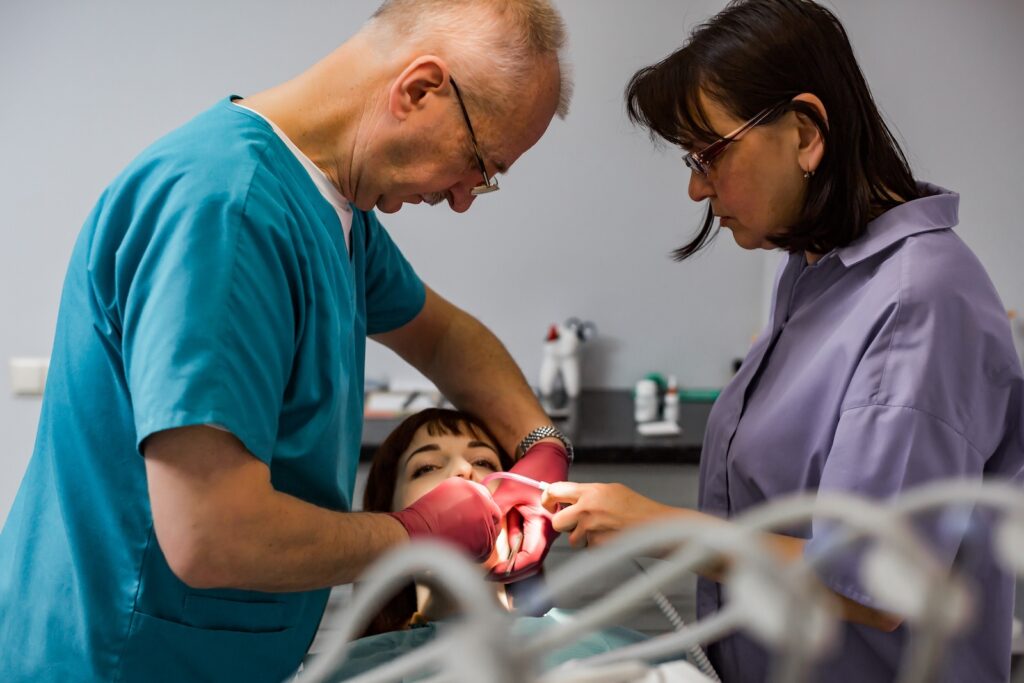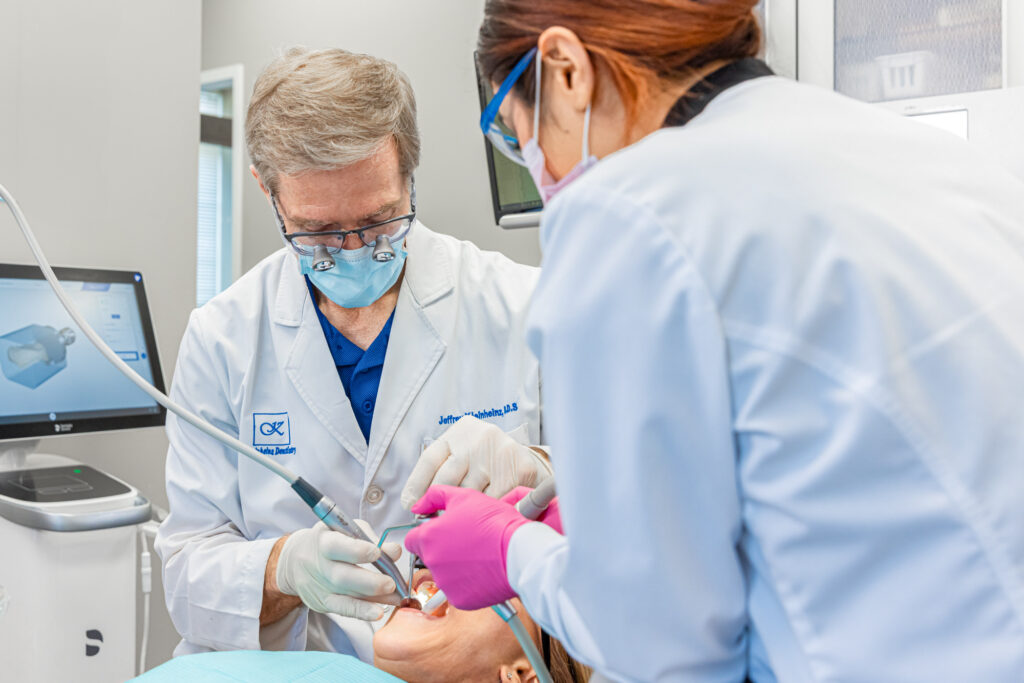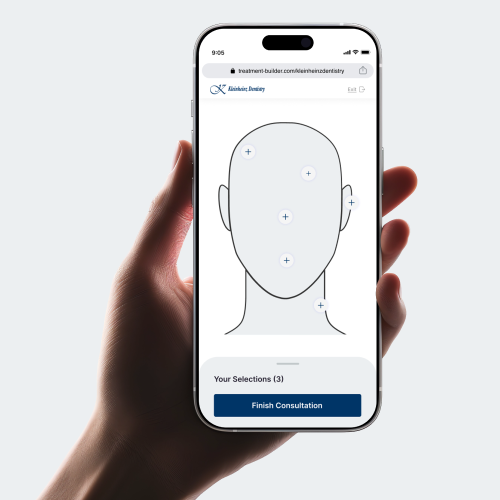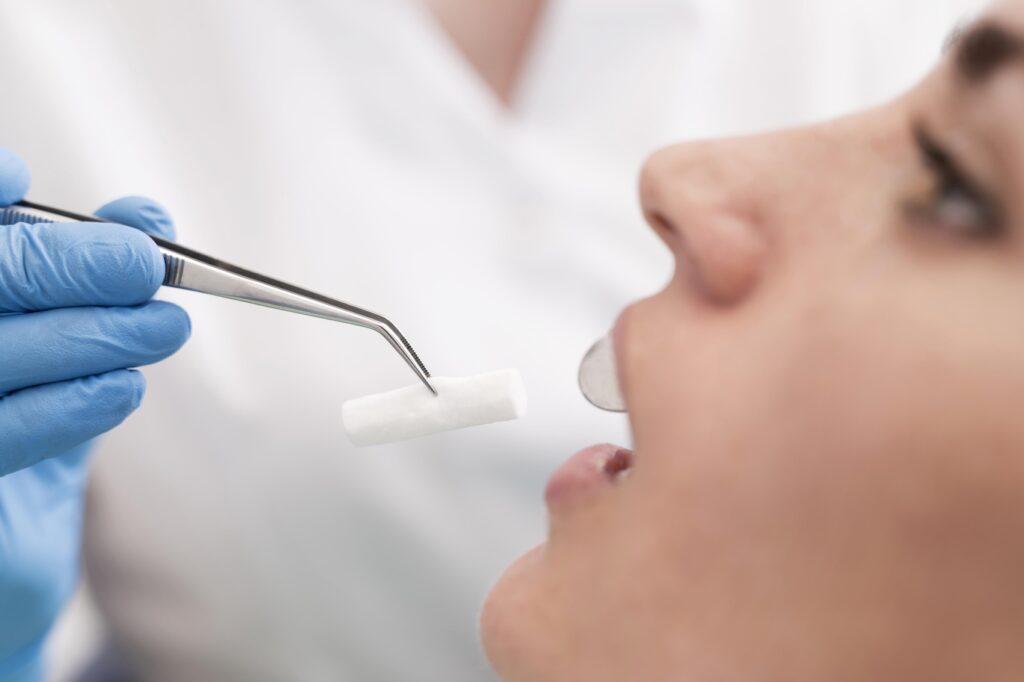
Learn About
Tooth Extractions
Tooth extractions in Charlotte can be necessary if you have signs of severe dental disease in one or more of the teeth in your mouth. Dr. Kleinheinz studies your teeth and looks for the signs of common conditions that can signal whether a tooth extraction is necessary:
- Tooth decay
- Gum disease
- Non-restorable tooth fractures
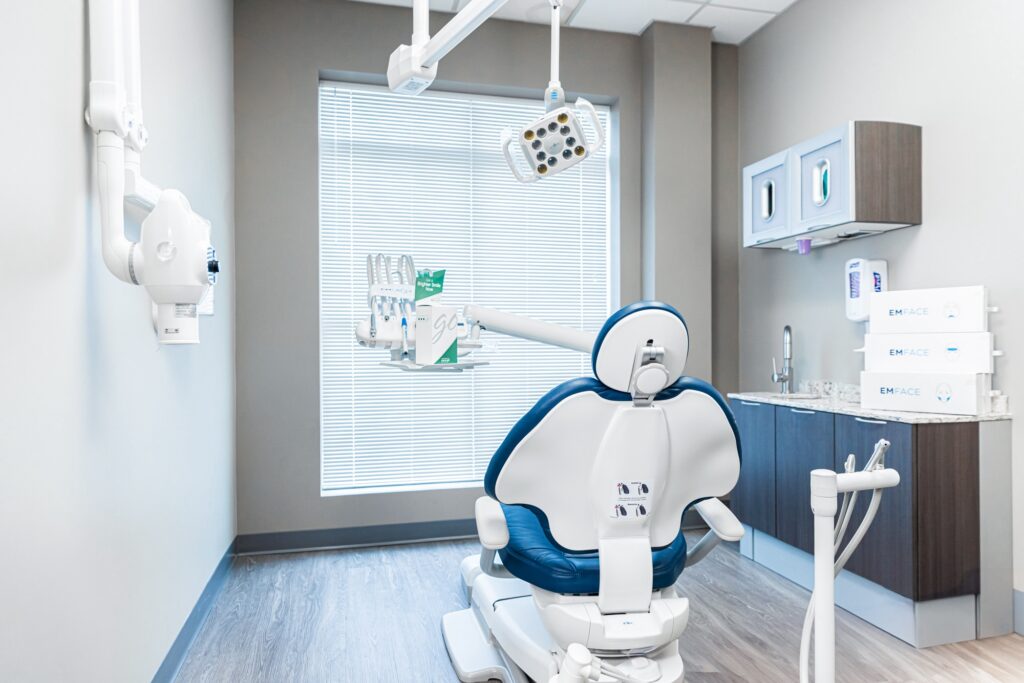
Our Process
Come in to meet Dr. Kleinheinz and our team. Talk to us about your medical history and any questions you have about tooth extraction.
We will give you an anesthetic to numb the gum, then it will take 7 minutes to an hour to perform the tooth extraction in Charlotte.
Although you may have results immediately because the tooth is gone, you could need 1 to 5 days of recovery time.
See What We
Can Do
Use our Treatment Planning Tool to see how our services can treat your oral or facial concerns.



Why Kleinheinz?
Before opening his private practice, Dr. Kleinheinz, a distinguished US Air Force veteran, worked as a dentist for a decade within the Air Force.
Kleinheinz Dentistry’s staff consists only of highly experienced professionals. We guarantee that our service will be superior.
We’re dedicated to providing you with excellent care. We do everything we can to give you a great tooth extraction in Charlotte.

Let’s Get Started
Book your appointment at Kleinheinz Dentistry whenever you’re ready to get a tooth extraction in Charlotte.



